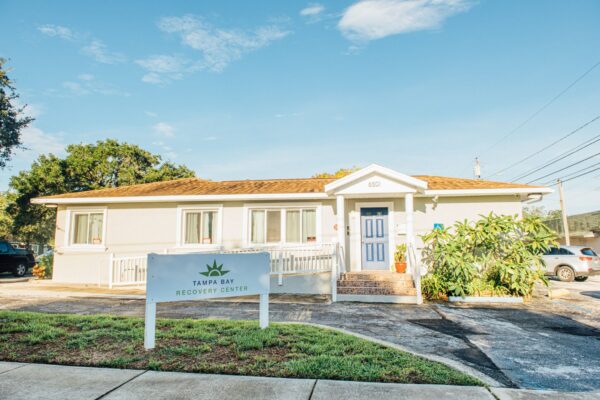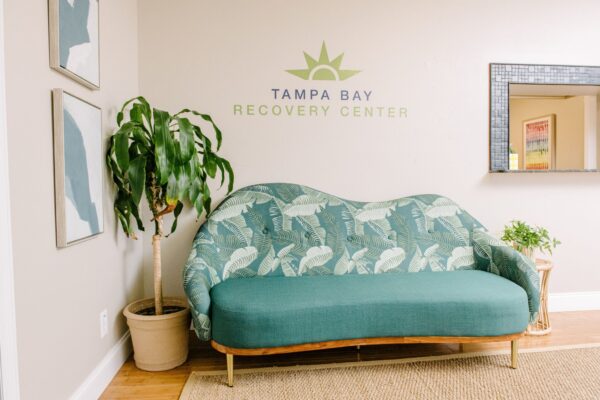Psychiatry
At Gulf Coast Recovery Center, we are proud to offer the most effective possible treatment options for people with substance use disorders, including addiction psychiatry in Tampa. Working with these therapists, our clients can come to a deeper understanding of their addiction and its causes, as well as what may be needed to achieve lasting recovery. With the right help, our clients overcome the challenges of addiction and possible co-occurring mental health disorders.
Are You Ready To Change Your Life?
Take Action Now.
What is Addiction Psychiatry?
Addiction psychiatry involves treating individuals living with substance use disorder or alcohol use disorder. It is a subspecialty of psychiatry that involves focusing on the evaluation and treatment of people with substance use disorders, and of people with co-occurring disorders, such as, for example, alcoholism plus depression, Xanax addiction plus trauma, or opioid use disorder plus anxiety.
Also known as dual diagnosis, co-occurring disorders result from a combination of genetic, environmental, and psychological factors. A genetic predisposition toward a specific mental health disorder or a substance use disorder is of course possible, but adverse experiences in childhood or adolescence, such as trauma or chronic stress, also increases the risk of developing co-occurring disorders.
Self-medication is another common cause of co-occurring disorders. This occurs when a person with untreated mental health issues turns to substances to alleviate their uncomfortable memories, thoughts, and feelings.
Unfortunately, self-medicating with drugs or alcohol often exacerbates the symptoms of a mental health disorder. This leads to the person turning to drug and alcohol more often and in higher quantities, which then leads to dependency and worsening symptoms.
Some common mental health disorders that can occur alongside a substance use disorder include:
- Depression
- Anxiety
- Post-Traumatic Stress Disorder (PTSD)
- Obsessive-Compulsive Disorder (OCD)
- Panic disorders
- Borderline Personality Disorder (BPD)
- Bipolar disorder
- Eating disorders
- Schizophrenia
While co-occurring disorders are very common, identifying a dual-diagnosis patient can be tricky. Fortunately, many drug and alcohol screening tools have made it easier for mental health professionals to spot co-occurring disorders. Our practitioners of addiction psychiatry in Tampa work to address the underlying psychological roots of each client’s particular addiction.

How Does Addiction Psychiatry Work?
Too often, people seeking treatment for addiction do not understand the root causes of their addictive behaviors. The best, most effective addiction treatment programs include a clinical assessment and offer counseling sessions so that clients can better understand their experiences and their relationship to certain substances. In doing so, they work with addiction psychiatrists and other medical professionals to identify the underlying causes of their addiction and produce a more effective treatment plan.
First, addiction psychiatrists evaluate and attempt to diagnose their patients for substance abuse and attendant mental health disorders. They then assess the patient’s abilities to successfully perform the activities of daily living, including dressing, eating, and bathing. They may also have the client undergo imaging and laboratory tests.
Depending on the patient’s diagnosis, the addiction psychiatrist then creates and implements a comprehensive treatment plan. This plan often includes individualized therapy, substance abuse treatment, counseling, and if necessary, medication.
Often, the mental health professional recommends a detoxification program, or detox, to help the client safely wean themselves off a controlled substance.
Addiction psychiatrists collaborate with other medical professionals—including neurologists, social workers, occupational therapists, and the patient’s primary care doctor—to ensure their patients receive the individualized, comprehensive care that leads to recovery success.
What Types of Addictions Does Our Psychiatry Treat?
Addiction psychiatry plays a major role during detox. Detox is the first phase of addiction treatment wherein the addict is safely weaned off the addictive substance or substances.
Because addiction so profoundly affects the brain’s neurochemistry, the medical expertise (and ability to prescribe medication for the treatment of withdrawal symptoms) of an addiction psychiatrist is often necessary.
Addiction psychiatry is especially effective in treating people with substance use disorder or alcohol use disorder that is complicated by a coexisting mental health disorder like depression, anxiety, trauma, or bipolar disorder. After all, substance abuse affects mental and physical health. Receiving help from an addiction psychiatrist may prevent serious and lasting mental and physical damage due to long-term substance abuse.

Benefits of Addiction Psychiatry in Tampa
Addiction psychiatry offers several key benefits in addressing substance use disorders and co-occurring mental health conditions like depression, anxiety, and bipolar disorder. These benefits include:
- Specialized expertise. Addiction psychiatry specializes in the diagnosis and treatment of addiction and attendant mental health disorders. This ensures that patients receive effective treatment.
- Dual diagnosis treatment. Addiction psychiatry can treat both addiction and co-occurring mental health disorders at the same time, which is critical since both disorders tend to build off each other.
- Comprehensive assessment. Addiction psychiatry cannot take place with a thorough clinical assessment, including psychological, behavioral, and medical evaluations.
- Medication management. Addiction psychiatrists can prescribe medications when needed to assist with addiction treatment and manage both withdrawal symptoms and mental health symptoms.
- Detoxification services. When required, addiction psychiatrists oversee the detoxification processes to manage withdrawal symptoms.
- Relapse prevention. Addiction psychiatry can help patients develop relapse prevention strategies, teaching coping skills and providing ongoing support to maintain their sobriety.
- Multidisciplinary collaboration. Addiction psychiatrists work alongside other healthcare professionals, ensuring a comprehensive approach to care that addresses not only addiction but also medical, social, and psychological factors in the client’s life.
- Reduced healthcare costs. Effective addiction psychiatry in Tampa can lead to cost savings by preventing repeated hospitalizations, legal issues, and other consequences of untreated addiction.
By providing specialized care, personalized treatment plans, and a comprehensive approach that treats the whole patient, addiction psychiatry has contributed to better patient outcomes and improved well-being for those working toward recovery.

Medically Reviewed
Medically Reviewed by
Jennifer Strong, LMHC
Written by Gulf Coast Recovery Staff Updated on January 12, 2024
Get Help Now
Rehab in Tampa, FL
Mental health disorders and addiction can severely impact your quality of life. But there is hope for recovery. Call Gulf Coast Recovery today to begin treatment with us.
Facility Image Gallery
Find Addiction Psychiatry In Tampa, FL
Gulf Coast Recovery Center offers comprehensive addiction treatment, including addiction psychiatry in Tampa, to help those in need. Our therapy programs help those struggling with substance use disorders and co-occurring mental health disorders achieve lifelong wellness. Contact us today.









 They recognized me as an individual. This is not a place that has cookie-cutter treatments that they attempt to force every patient to fit into. They realize that different people with similar problems respond differently, some better to one type of treatment and some not so much. I feel like that is why I succeeded here.
They recognized me as an individual. This is not a place that has cookie-cutter treatments that they attempt to force every patient to fit into. They realize that different people with similar problems respond differently, some better to one type of treatment and some not so much. I feel like that is why I succeeded here.



